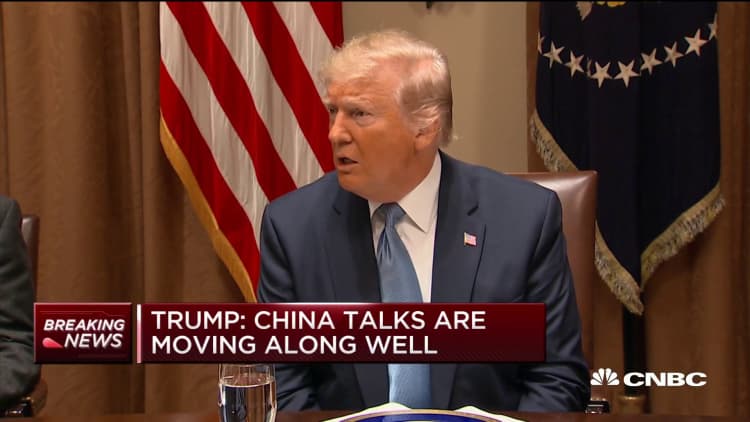The U.S. and China are still at odds over the size of Chinese agriculture purchases, The Wall Street Journal reported Thursday.
President Donald Trump is asking China to buy $40 billion to $50 billion of farm goods a year, which is significantly higher than the $8.6 billion the country bought last year, the Journal said, citing people familiar with the discussions. The administration is also demanding that China publicly announce its purchasing plans and say that they wouldn't depend on market conditions or China's trade obligations, sources told the Journal.
The two countries are in talks to finalize a so-called phase one trade deal as 15% tariffs on $165 billion in Chinese imports are set to kick in Dec. 15.

Trump said Thursday that something could happen regarding those tariffs, but added they are not discussing that yet. He also said he believed trade talks with Beijing were going "very well."
Chinese Commerce Ministry spokesman Gao Feng said Thursday that the two sides remain in close communications regarding trade. He added that China "believes if both sides reach a phase-one agreement, relevant tariffs must be lowered."
Bloomberg News reported Wednesday that both countries were inching closer to securing an agreement on the amount of tariffs that would be rolled back in a limited trade deal.
— Click here to read the original Wall Street Journal story.


